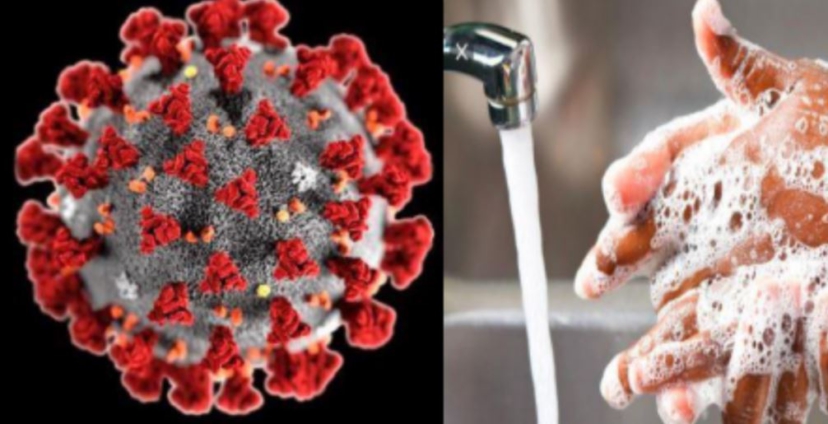A study across the country has revealed lots of Ghanaians are not washing their hands frequently for more than twenty seconds as recommended by the World Health Organisation to prevent spread of Covid-19.
The study showed 46.1% of the respondents practised handwashing for more than 20 seconds, 35.7% did that for 10-20 seconds while 18.2% also did so for less than ten seconds.
“It was found in the study that most people do not wash their hands in accordance with the WHO’s standard of not less than 20 seconds per handwash,” the study by PhD student at the Kwame Nkrumah University of Science and Technology (KNUST) Francis Dadzie Mintah and seven other researchers from the University of Cape Coast, University of Ghana and the University of Education – Winneba, noted.
Questionnaires were administered to over one thousand people who were sampled across the country using a simple random sampling technique.
The study observes a lot of people are practicing frequent handwashing with soap under running water in this Covid-19 era more than before the pandemic hit.
However, a decline in the frequent washing of hands in a day is likely to be observed in the country after the Covid-19 pandemic period.
If this trend continues, there is the likelihood of Ghanaians and non-Ghanaians becoming more exposed to not only Covid-19 disease but also to all diseases associated with personal hygiene.
“This may result in high fatalities in diseases pertaining to personal hygiene,” the study said.
It recommended that education on handwashing for personal hygiene should be intensified across the entire country. Moreover, the attitude of Ghanaians toward personal hygiene and handwashing to be precise should change for the better.
“Again, the government of Ghana should put in measures to ensure availability of running water in the communities across the country,” the study recommended.
The study found that females are 79% more likely to engage in frequent handwashing as compared to males.
Moreover, non-Ghanaians are 81% more likely to frequently wash their hands than Ghanaians. Individuals with no formal education are 19% less likely to engage in frequent handwashing per day as compared with those with tertiary education.
“Therefore, education on frequent handwashing should be intensified across the entire country,” the study added.
Latest Stories
-
Scientists make case for intercropping amidst climate change impacts
17 seconds -
Government urged to boost TVET to reduce unemployment
4 minutes -
Leading NPP member proposes revision of requirements for higher party roles
9 minutes -
Embedding Ethical AI in Public Procurement: Ghana’s path to trustworthy automation in E-governance
12 minutes -
Seth Terkper to launch book on Ghana’s VAT journey and lessons for Africa
15 minutes -
The silence around Nana Pooley’s case: When justice sleeps, society suffers
15 minutes -
UTAG president challenges Chinese Ambassador over galamsey remarks
16 minutes -
The Escalating Israel-Iran War: A new threat to global trade
25 minutes -
Seven killed in Kyiv in new Russian aerial attack
29 minutes -
Hearts’ $70,000 transfer saga with New Edubiase is being resolved – Opare Addo
40 minutes -
Former Deputy Foreign Affairs Minister questions Mahama’s recall of 3 career diplomats
41 minutes -
Senior NPP figure in Ashanti region advocates grassroots experience as prerequisite for top party roles
54 minutes -
Hindsight: How Maxwell Konadu lost the Hearts coaching job to Didi Dramani
60 minutes -
Scars of Hooliganism: GFA should ‘stop talking so much and do more’ – Herbert Mensah
1 hour -
Mass dismissal: BoG’s decision should be respected – Vickie Bright
2 hours

